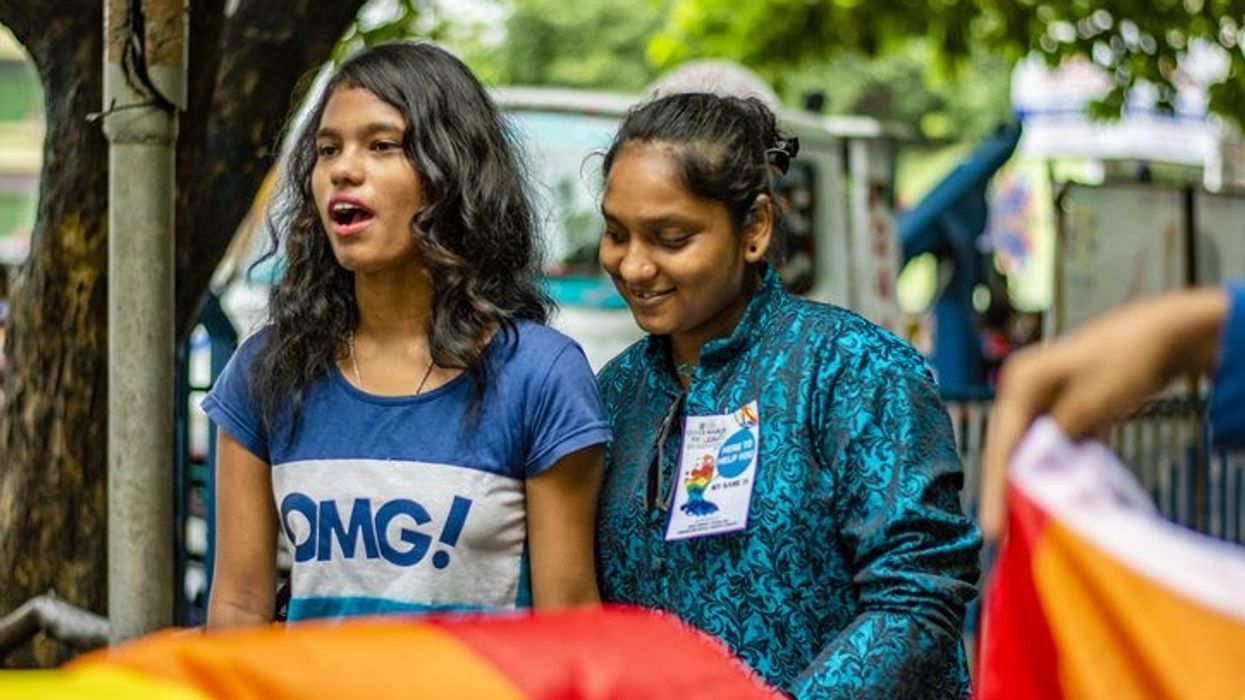As the supreme court commences hearings on the rights of LGBTQ people to marry under the law, the Indian government has vehemently opposed the legalisation of same-sex marriage, denouncing it as "urban elitist views" that undermine religious and social values.
Numerous petitions from LGBTQ couples and activists were presented to India’s highest court on Tuesday as part of a joint lawsuit that seeks equality for LGBTQ individuals and the right to marry.
This lawsuit represents the most significant challenge to the current state of gay rights in the country since 2018 when the supreme court invalidated a colonial-era law that criminalised homosexuality in a landmark judgment.
Beginning Tuesday (18), a five-judge panel led by Chief Justice Dhananjaya Yashwant Chandrachud will preside over the marriage issue, which the chief justice has deemed of "seminal importance," and the hearing is expected to last at least two weeks.
The case, will be live-streamed on both the court website and YouTube.
On Monday, the Hindu nationalist government, headed by Narendra Modi, submitted a strongly worded affidavit to the Supreme Court, expressing its resistance to same-sex marriage and urging the court to dismiss the case on the grounds that same-sex marriages are not "comparable with the Indian family unit concept of a husband, a wife and children".
"The petitions, which merely reflect urban elitist views, cannot be compared with the appropriate legislature which reflects the views and voices of far wider spectrum and expands across the country," the government said in a filing to the Supreme Court on Sunday and seen by Reuters.
In the 102-page filing, it was requested that the current set of petitions be dismissed on maintainability grounds, and it was argued that recognising same-sex marriage would amount to a "virtual judicial rewriting of an entire branch of law."
The government said that it must consider the "broader views and voices of all rural, semi-rural, and urban populations, as well as the opinions of religious denominations."
Over the past few months, the court has received at least 15 appeals arguing that the lack of legal recognition for same-sex couples would prevent them from accessing various rights, including those related to medical consent, pensions, adoption, and even club memberships.
In contrast to the West, same-sex marriages are not as widely embraced in Asia.
Taiwan became the first country in the region to legalise such unions, but same-sex acts remain prohibited in some nations, such as Malaysia.
Although Singapore lifted a ban on gay sex last year, it also took measures to prohibit same-sex marriages.
Among the Group of Seven wealthy nations, only Japan does not offer legal recognition to same-sex unions, despite public support for such recognition being widespread.
(With inputs from The Guardian and Reuters)




